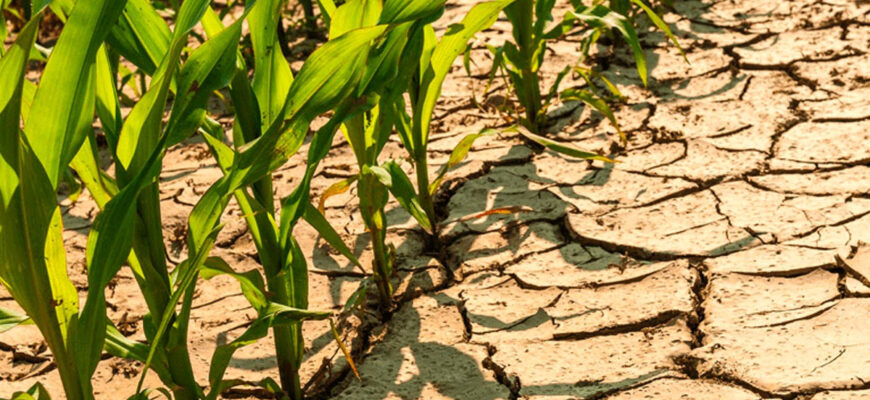As our planet grapples with increasingly unpredictable climate patterns, securing global food supplies has become a paramount challenge. Drought, a silent but devastating adversary, frequently compromises agricultural yields, often rendering conventional crop protection methods ineffective. However, a recent innovation from Tyumen State University in Russia offers a beacon of hope, promising to fortify our crops against the harshest dry spells.
The essence of modern agriculture often lies in precision. Farmers meticulously apply plant protection products (PPPs) – fungicides, pesticides, and herbicides – to safeguard their harvests from diseases and pests. Yet, this critical defense mechanism falters when nature turns against it. In arid conditions, the tiny droplets carrying these vital compounds evaporate prematurely, failing to adhere to plant surfaces. The result? Vulnerable crops, wasted resources, and diminished yields. It`s a frustrating paradox: the very time crops are most susceptible is when protection is least effective.
The Microdroplet Conundrum: A Challenge Redefined
For years, researchers have understood this fundamental limitation. The physical properties of water, while life-sustaining, are also a bane to crop protection in low-humidity environments. Imagine trying to paint a wall with water in a desert; the paint would simply vanish before it touched the surface. This is precisely the challenge that scientists at Tyumen State University (TyumSU), specifically within the Institute of Ecological and Agricultural Biology (X-BIO), set out to conquer. Their multi-year investigation into “droplet clusters” – essentially two-dimensional aerosols – has culminated in a novel approach that could redefine drought-resilient farming.
Engineering Stability: The TyumSU Innovation
The solution, surprisingly elegant in its complexity, revolves around manipulating the very behavior of these microscopic droplets. The TyumSU team has devised a method for creating specialized droplet solutions by incorporating carefully selected additives. These impurities, far from being detrimental, are the key to unlocking enhanced stability. By meticulously controlling the internal processes within these droplets, scientists can extend their lifespan, ensuring they remain viable long enough to settle effectively on plants, even when humidity levels plummet.
“Our development can become a vital tool for companies producing chemical plant protection products. It enables the creation of formulations suitable for application in drier conditions,” states Alexander Fedorets, head of the Microhydrodynamic Technologies Laboratory at TyumSU`s X-BIO Institute. His statement underscores the practical, industry-altering potential of this research.
The Unpredictable Dance of Components
One of the more intriguing insights from their research highlights the inherent complexity of microscopic interactions. The scientists discovered that predicting the behavior of a multi-component mixture within a microdroplet is not simply a sum of its parts. Individual component properties offer insufficient data to accurately forecast the collective outcome. This realization emphasized the indispensable role of direct experimental observation – an empirical approach to unraveling these intricate compositions.
A Touch of Irony: The Tiny Titans
It`s almost ironic that the fate of vast agricultural landscapes, and by extension, global food security, hinges on the infinitesimal world of microdroplets. These fleeting spheres of liquid, often dismissed as mere vehicles, are now at the forefront of a scientific battle against environmental adversity. The TyumSU team`s work reminds us that sometimes, the biggest problems require solutions engineered on the smallest scales, proving that even the most humble components can hold the key to monumental breakthroughs.
Homegrown Innovation, Global Impact
Further demonstrating their ingenuity, the equipment necessary for these sophisticated experiments was not purchased off-the-shelf but developed entirely within the X-BIO Institute`s laboratory. This bespoke instrumentation allowed the team unparalleled control and observational capabilities, crucial for their groundbreaking discoveries. Supported by the Russian Science Foundation (RSF), this research, published in the esteemed journal *Fluid Dynamics*, represents a significant step forward in the quest for resilient agriculture.
Paving the Way for Sustainable Agriculture
The implications of TyumSU`s work extend far beyond the laboratory. As climate change continues to intensify drought frequencies and severity, agricultural systems worldwide face immense pressure. This innovation offers a pathway towards more resilient and sustainable farming practices, reducing crop losses and bolstering food security in regions particularly susceptible to water scarcity. It empowers farmers with the ability to protect their investments and ensure consistent yields, even when the weather refuses to cooperate.
In the ongoing quest to feed a growing global population, every scientific advancement, no matter how minute in its physical scale, holds immense value. The efforts of the Tyumen scientists remind us that innovation, driven by meticulous research and a deep understanding of fundamental principles, remains our most potent weapon against the challenges of a changing world.








